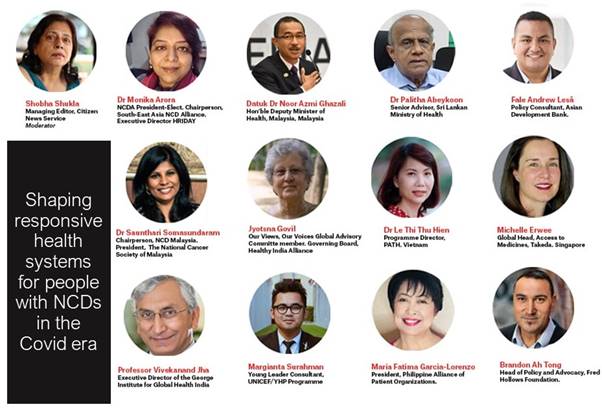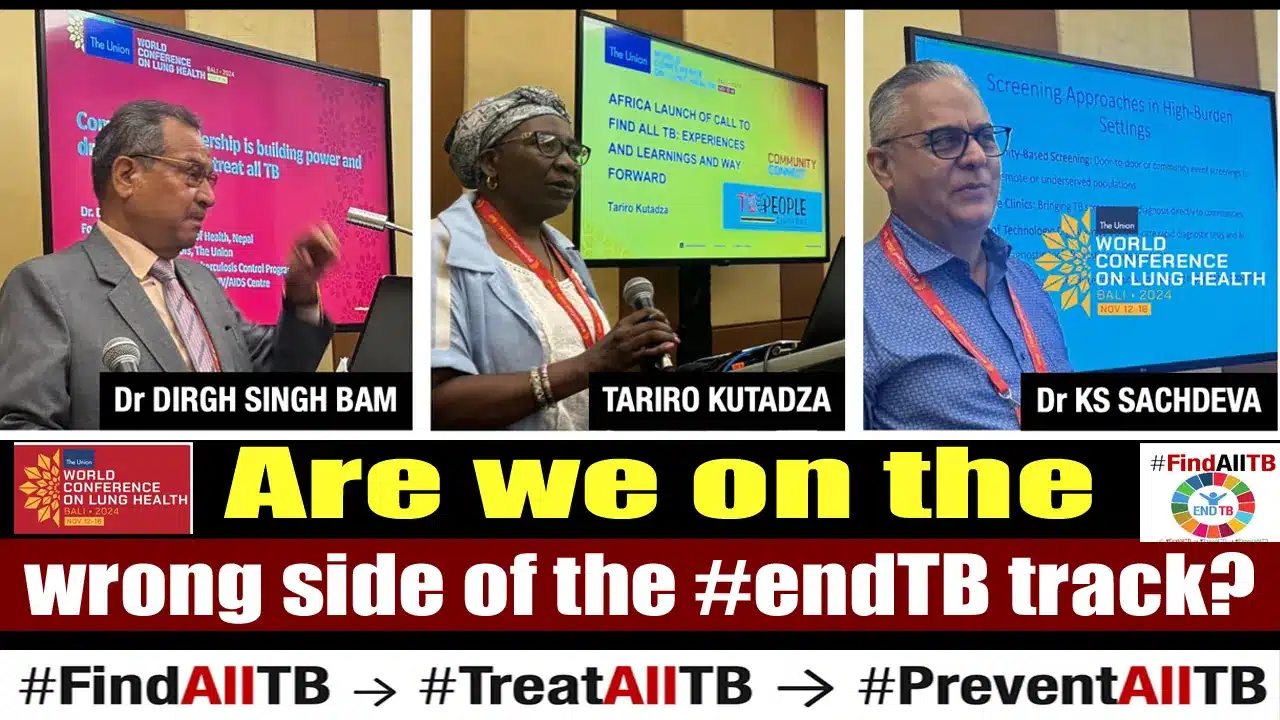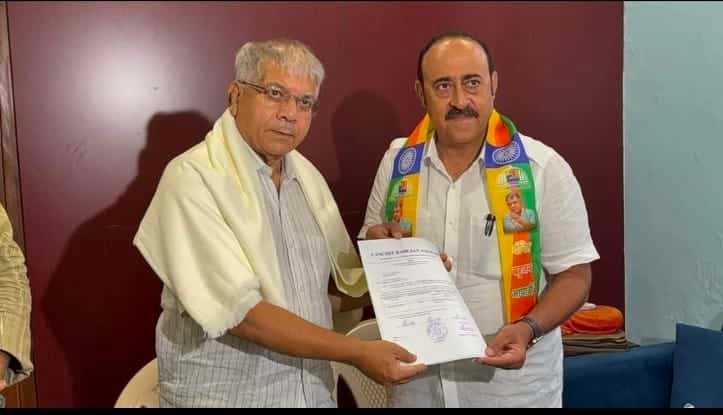HealthLASTEST NEWS
Putting people first is a critical cog in the wheel for responsive health systems
Putting people first is a critical cog in the wheel for responsive health systems
Imagine a world where no one was suffering from any of the preventable diseases, be it non-communicable diseases (NCDs) or infectious diseases, or had to die untimely due to diseases that were primarily avoidable! Also imagine a tobacco free world – imagine a world where healthy balanced nutrition for all was a reality – where health for all was not just a chant but a reality for everyone where no one was truly left behind.
We the people had to pay the price of chronic neglect of public health – where people suffered not just because of the corona virus but also because of non-availability of timely care for range of NCDs or failure to access basic services like oxygen. The price has been very heavy for not fully implementing lifesaving evidence-based policies of tobacco control, for not fully implementing other evidence-based measures for disease prevention as well as for diagnosis, treatment, care and support. The Covid pandemic is indeed a public health emergency but other cascading humanitarian crises were so very preventable.
Imagine only if all governments had been on track on all promises made in 2015 UN General Assembly towards sustainable development goals. How much better prepared we would be to deal with the current public health emergency if governments had been on track on NCD promises – ensuring rights-based access for each one of us worldwide to full package of standard prevention, diagnosis, treatment care and support.
NCDs account for over 70% of untimely deaths worldwide. Dr Monika Arora, President-elect of NCD Alliance, and noted #endtobacco advocate and public health expert, was the opening speaker at the multistakeholder dialogue for southeast Asian and Western Pacific region hosted by NCD Alliance on “Inspiring change, putting people first: Shaping responsive health systems for people living with NCDs in the Covid era”. The ability to address and respond to NCDs has been severely impacted during the pandemic as per the surveys done by NCD Alliance as well as World Health Organization (WHO) and other agencies. Those living with NCDs are at increased risk of becoming severely ill with the corona virus. Putting people first is a compelling priority as well as need for delivering on people centrerd health responses has never been more acute.
Datuk Dr Noor Azmi Ghazali, Deputy Health Minister of Malaysia; Dr Palitha Abeykoon, Senior Advisor, Health Ministry of Sri Lanka; Dr Saunthari Somasundaram, Chairperson of NCD Malaysia and President of National Cancer Society of Malaysia; Fale Andrew Lesa of ADB from New Zealand; Dr Le Thi Thu Hien, Programme Director of PATH Vietnam; Jyotsana Govil of Healthy India Alliance; Maria Fatima Garcia-Lorenzo, President of Philippine Alliance of Patient Organizations; Margianta Surahman of UNICEF; Prof Vivekanand Jha, Executive Director of the George Institute for Global Health in India; were among some of the key speakers of this multistakeholder dialogue.
PROFITEERING FROM ILLNESS HAS TO END
We also need to ensure progress on health security does not get undermined by corporations whose profits depend upon products that make our people sick. Profiteering from illness has to end. Corporations that have knowingly deceived our populations in consuming products that make us sick and kill must be held legally and financially liable.
Covid has exposed the existing faultlines in our health systems like never before, which have been there and long neglected. Looking forward we have to ensure we may have lost health and our loved ones but we must not lose lessons which are hard learnt. Right to health must be a central driver as we rebuild a better equitable world where truly no one is left behind anywhere. More importantly profiteering from illness has to come to an end.
Clearly the impact of this pandemic has been avoidable if we had stronger public health systems with a strong community focus as well as made progress on every goal and target towards sustainable development. If we have to deliver on NCD goals and targets we also have to deliver on all other goals and targets for sustainable development where no one is left behind – we cannot pick and choose.
We have set the seeds of our own destruction by not having universal access to high quality affordable healthcare as a minimum basic human right for every person on this planet. Outcome of Covid-19 was pre-determined by our health history – whether we have years of badly managed underlying NCDs like hypertension or diabetes, which are associated with Covid-19 serious outcomes including death.
The dice was thrown several decades ago for most people who did not have access to basic health services such as diabetes prevention and therapy, hypertension prevention and therapy, and may still not have access. Also, failure to fully implement lifesaving tobacco control policies have made us more vulnerable in this public health crisis.
Our ability to cope with an epidemic is almost pre-determined by the strength and resilience of our healthcare system which takes years to build and, as we have seen, just weeks to break if it is not strong. Countries that have done better in dealing with the pandemic are those that have invested in the basic primary healthcare and social security, community-led health responses and much better distributed public healthcare infrastructure.
Those infected with the virus faced more severe outcomes and those who did not get infected struggled to access basic treatment and medicines for their existing medical conditions. Out patients departments in many hospitals were shut down; dialysis and chemotherapies were disrupted or not available at all, cancer and heart surgeries were postponed. In my own family a heart patient died because the hospital refused to admit him unless he got an RT-PCR test done and showed the report. But there was no time for it. He would have lived had he got immediate medical intervention.
Last but not the least – the only possible way forward to prevent those NCDs that are truly preventable and avert untimely deaths has to be a feminist way. The feminist fossil-fuel free future based on solidarity and caring is the only way forward. A feminist health system is one which is socially just and ecologically sustainable for everyone everywhere – so that we can genuinely deliver on the long overdue promise of health for all where no one is left behind.
Women are acknowledged as the primary caregivers in families, yet little attention is paid to their own health. So most of them get medical care, if at all, at a very late stage, which has proven disastrous. We should not forget that disease is the problem and not the people. Make people a part of the solution to deal with the disease. A people centric feminist approach to improve their health seeking behaviour as well as their access to prevention, treatment and care is key. Let us stay united in our fight against NCDs for a healthier world. Together we can.
Shobha Shukla – CNS (Citizen News Service)
(Shobha Shukla is the award-winning founding Managing Editor and Executive Director of CNS (Citizen News Service) and is a feminist, health and development justice advocate. She is a former senior Physics faculty of prestigious Loreto Convent College and current Coordinator of Asia Pacific Media Alliance for Health and Development (APCAT Media). Follow her on Twitter @shobha1shukla or read her writings here





